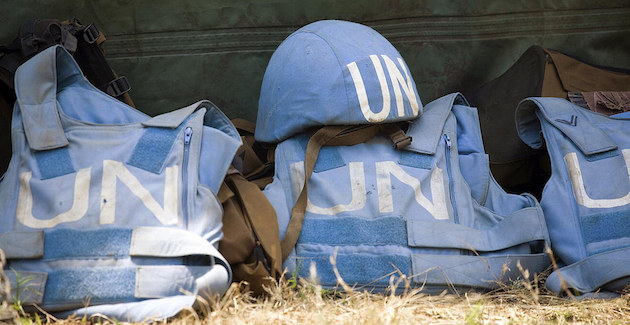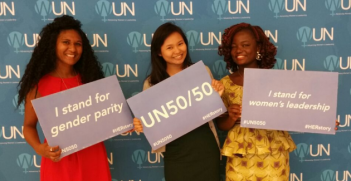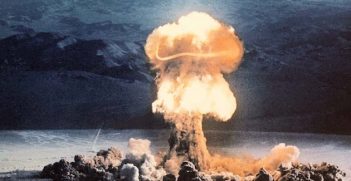Resolution 2272: Holding UN Peacekeepers Accountable

It is a little over a year since the UN Security Council took action to combat sexual abuse by UN peacekeepers. Resolution 2272 offered the first disciplinary mechanism for addressing sexual misconduct, but did it go far enough?
In March 2016, the United Nations Security Council adopted its first resolution—Resolution 2272—aimed at preventing sexual exploitation and abuse (SEA) by those under UN mandate. The development and eventual adoption of this resolution was in response to focused media attention on several allegations made against peacekeepers in the UN’s peace operation in the Central African Republic, as well as evidence that those accused largely enjoy immunity, facing little if any punitive action.
While it is not yet possible to evaluate the implementation of Resolution 2272, given its recent adoption, it is possible critically to evaluate both the resolution’s text and the mechanism for prevention it established. The text of Resolution 2272 characterises SEA as a problem for the legitimacy of the UN, atomising and seeking to remove SEA from a broader institutional culture—one that prioritises militarised and patriarchal forms of security. It does not challenge the status quo that sustains a lack of accountability for SEA.
While addressing SEA through technical measures such as adding more women to missions as peacekeepers, repatriating peacekeepers or trying to enforce zero tolerance may reduce the frequency of occurrences in some instances, ultimately what is essential is to increase the value of gender equality among all peacekeepers. Technical responses to SEA conform to institutional norms rather than challenge them, yet it is these norms that contribute to the problem of SEA and the ongoing lack of accountability.
UN responses to sexual exploitation and abuse
The UN’s response to cases of SEA by peacekeepers coalesces around three pillars: prevention, enforcement and remedial action. In 2003, UN Secretary-General Kofi Annan released a report, known as ‘the Bulletin’, which instituted a “zero-tolerance” mandate for SEA in peace operations, and which continues to frame responses to SEA. Although it is continually emphasised, zero tolerance has neither improved accountability nor reduced the number of allegations of SEA, judged in terms of reported numbers of allegations and punitive measures meted out by either the UN or troop-contributing countries.
The lack of accountability that exists for the perpetration of SEA at all levels within the UN has been linked to gendered security ideals that see (masculine) militarised security dominate over critical and feminist readings of insecurity in post-conflict settings.
Since the release of the Bulletin in 2003, the UN secretary-general has been obliged to report to the General Assembly on the number of allegations of SEA for each mission in the previous year and the status of investigations into those allegations. In 2015, there were 99 allegations in total, 69 of which were made against staff attached to peace operations; the remaining 30 allegations came from across UN agencies, funds and programs.
Adoption of Resolution 2272
The opening paragraphs of Resolution 2272 “express deep concern about the serious and continuous allegations and under-reporting” of SEA in missions by UN and non-UN personnel. The text of the resolution notes the negative impact that “serious and continuous” allegations of SEA have on the credibility of the UN and its ability to implement peacekeeping mandates. The resolution reaffirms zero tolerance but also mandates a new mechanism as a response to SEA: the repatriation of entire military contingents and police units that contain individuals who have allegations made against them. The secretary-general can then replace those repatriated units with another from a contributing country that “has upheld standards of conduct and discipline and appropriately addressed allegations against or confirmed acts, if any… by its personnel”.
The resolution not only confirms the responsibility of the secretary-general to enforce accountability measures and commit to the prevention of SEA by removing perpetrators from peace operations, but also reaffirms the role of member states and national jurisdictions in prosecuting perpetrators and enforcing accountability. It is the secretary-general’s role to assess whether contributing countries have taken the appropriate steps and, if not, then to trigger the repatriation of units. Troop-contributing countries are tasked with strengthening pre-deployment training to prevent SEA, conducting investigations into allegations and, in turn and where necessary, ensuring that individuals are held accountable.
The resolution thus represents a change in the UN’s response to SEA, as well as the expectations placed on troop-contributing countries, beyond a lackadaisical implementation of zero tolerance.
While the adoption and text of resolution 2272 sets an important mechanism to enhance accountability for SEA in peace operations, it nonetheless embodies some important limitations. One limitation is simply in understanding and defining the exact parameters of the text. The language of ‘credible’ differs from how allegations and investigations are generally reported on within the UN, with reference to ‘substantiation’ (or unsubstantiated allegations) more common. Moreover, the resolution fails to account for civilian personnel both within and outside peace operations. Given that less than half the allegations in 2015 were made against ‘uniformed’ personnel the mechanism to repatriate only uniformed contingents from peace operations is demonstrably insufficient. To prevent SEA fully and protect populations from perpetrators necessitates response mechanisms that, at the least, capture both uniformed and civilian staff.
The resolution does not represent marked progress in terms of formal justice for survivors, even when and if repatriation does occur. Removal or repatriation on its own represents neither prevention nor accountability. Certainly, there is an immediate effect of removing perpetrators from the environment in which they are committing abuses. Yet how it ensures accountability, feeds into punitive responses or improves the investigative capacities available is unclear, even if the opaqueness of the terms of the resolution is set aside.
In the past, when individual perpetrators of SEA have been repatriated this can contribute to the silence surrounding the issue, as the perpetrator is no longer accessible to their accuser or to investigating units (both local and UN), and information on what happens after repatriation is not provided to communities at mission sites. Where an investigation is conducted, it rests with the troop-contributing country to act on it, and to provide and communicate outcomes to those who report allegations. Accountability to local populations is absent in the resolution’s text, and the legitimacy and image of the UN as an institution are emphasised.
Beyond rhetoric
The adoption of Resolution 2272 in 2016 is noteworthy in that it is the first time that the UN Security Council has devoted an entire resolution to SEA by peacekeepers. Inherent in the sending home of whole contingents is a preparedness to name and shame countries whose peacekeepers abuse. Given how such processes have been politicised, it is important that the implementation of Resolution 2272 does not succumb to the same political machinations that have seen a deep reluctance to enforce accountability for SEA by peacekeepers, especially for those in senior positions, in the past.
However, there are also limitations in terms of its depth and the forms of accountability it offers. It pertains only to uniformed units, which are only a portion of those that have allegations made against them throughout the UN system, and sets ill-defined thresholds, such as “systemic and widespread”, which are not self-evident.
The perspective of those at mission sites is also noticeably absent in the text of the resolution, reflecting the fact that the resolution was drafted and adopted only in the face of widespread international condemnation of SEA that caused ‘embarrassment’ for the organisation, even though the prevalence of SEA in peace operations was known previously.
Moreover, Resolution 2272 does not address the gendered nature of insecurity in post-conflict zones or the fact that peace operations themselves produce hierarchical gender relations. It is in this context that consistent reports of SEA have been ignored, and the reluctance to name and shame contributing countries is seen to have become a rational exercise in ensuring the continuance of the status quo of peace operations.
At the very least, the adoption of Resolution 2272 represents a rhetorical commitment: some evidence of institutional steps towards improved transparency and accountability. The practice of Resolution 2272 will need to move beyond rhetoric, however, if prevention, the stated aim of the resolution, is to be achieved.
Dr Sarah Smith is a lecturer on gender and international relations at Monash University. Her research is focussed on peace, conflict and gender.
This article is an edited extract from a paper published in the Australian Journal of International Affairs on 10 April 2017. It may be accessed in its unabridged form here.





